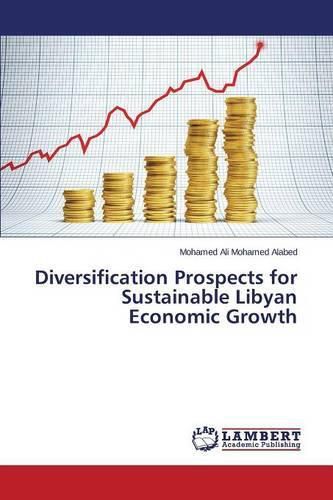Readings Newsletter
Become a Readings Member to make your shopping experience even easier.
Sign in or sign up for free!
You’re not far away from qualifying for FREE standard shipping within Australia
You’ve qualified for FREE standard shipping within Australia
The cart is loading…






This title is printed to order. This book may have been self-published. If so, we cannot guarantee the quality of the content. In the main most books will have gone through the editing process however some may not. We therefore suggest that you be aware of this before ordering this book. If in doubt check either the author or publisher’s details as we are unable to accept any returns unless they are faulty. Please contact us if you have any questions.
In recent years Libya has faced an externally economic problem. Its main difficulty in sustaining economic growth is not capital shortage. Capital and foreign exchange are continuously earned and accumulated as a result of exporting of oil. However, the economic development was not as impressive as it should have been. What may go seriously wrong is the large extent of dependency on oil exports, where in this illustration Libya would be a manifest case. Yet, Libya has been unable to adequately distribute its GDP across a wide range of productive sectors.This concern highlights the earlier awareness to the risks of oil resource depletion which could compromise the future of Libyan economy.There should be strong linkage between the domestic primary production sector and the industries sector to introduce value-added in manufacturing and services to ensure that its revenues from oil are well managed and that the oil is well integrated with rest of the economy.This is to say, instead of having a growth of Gross Domestic Product (GDP) from the expansion of a single sector, the diversification as used by economists will imply allowing other sectors to contribute to growth of the GDP.
$9.00 standard shipping within Australia
FREE standard shipping within Australia for orders over $100.00
Express & International shipping calculated at checkout
This title is printed to order. This book may have been self-published. If so, we cannot guarantee the quality of the content. In the main most books will have gone through the editing process however some may not. We therefore suggest that you be aware of this before ordering this book. If in doubt check either the author or publisher’s details as we are unable to accept any returns unless they are faulty. Please contact us if you have any questions.
In recent years Libya has faced an externally economic problem. Its main difficulty in sustaining economic growth is not capital shortage. Capital and foreign exchange are continuously earned and accumulated as a result of exporting of oil. However, the economic development was not as impressive as it should have been. What may go seriously wrong is the large extent of dependency on oil exports, where in this illustration Libya would be a manifest case. Yet, Libya has been unable to adequately distribute its GDP across a wide range of productive sectors.This concern highlights the earlier awareness to the risks of oil resource depletion which could compromise the future of Libyan economy.There should be strong linkage between the domestic primary production sector and the industries sector to introduce value-added in manufacturing and services to ensure that its revenues from oil are well managed and that the oil is well integrated with rest of the economy.This is to say, instead of having a growth of Gross Domestic Product (GDP) from the expansion of a single sector, the diversification as used by economists will imply allowing other sectors to contribute to growth of the GDP.